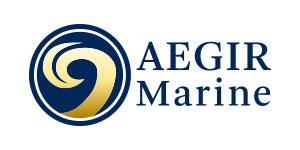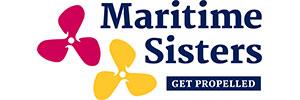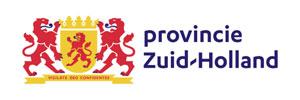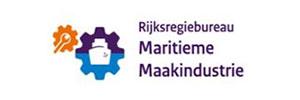Discover the world’s first Circular Route
At Europort 2025, you can experience a global first: a Circular Route through the maritime sector. This interactive program highlights 14 pioneering companies that demonstrate how smart raw material strategies and circular business models are future-proofing their businesses and the maritime sector. Visitors will gain practical insight into how circularity contributes to cost savings, creates commercial opportunities, and increases strategic autonomy.
Smart (re)use of raw materials is not only good for the planet, it is also smart business. Discover how on this specially curated route!
What can you expect?
- Hands-on, practical examples
From modular design and remanufacturing to sustainable retrofitting and smart construction — each participating company showcases its own circular solution for a future-proof maritime industry. - Insight and inspiration
Learn first-hand how circular strategies create cost savings (contributing to the targeted 10-15% reduction for newbuilds*, remanufactured components up to 60%), unlock new business opportunities, enhance strategic autonomy and attract new talent. - Easy to spot
Companies on the Circular Route are clearly marked with signage at their booth. The route is highlighted on the Europort floorplan and the Circular Route map, which you can download here (the link will be available soon).
Participating companies
A selection of frontrunners will be featured along the route, including:
AEGIR-Marine, Alewijnse, Allard Europe/Royal IHC, THB Verhoef, Bureau Veritas Marine & Offshore, Holland Shipyards Group, Damen Shipyards, Rotterdam Ship Repair, NIM (Nederlandse Innovatie Maatschappij), CEAD, Wärtsilä, Econowind, Conoship and Shipsonic.
-
 AEGIR-Marine (booth 1004)
AEGIR-Marine (booth 1004)Project: Maritime Remanufacturing Network
AEGIR-Marine provides services and parts for ship propulsion systems. On the Circular Route, they present their pilot project: 'Remanufacturing a 20-year-old bow thruster’. In collaboration with Bureau Veritas and other partners, AEGIR-Marine aims to develop a process that enables used equipment to be remanufactured and certified as new. The wins: 40-60% more economical, 60-80% more ecological and up to 90% savings in raw materials and energy.A physical start of the remanufacturing process creates tangible, visible actions and sparks enthusiasm. This project unites the industry by bringing together knowledge holders, users, suppliers, and other maritime service providers. It is an opportunity to make the shipping industry more sustainable in the short term. It combines economic sense, job creation and a strong contribution to multiple Sustainable Development Goals (SDGs).
Click here for the Maritime Remanufacturing Network website & Aegir-Sustainability page -
.jpg) Alewijnse (booth 1308)
Alewijnse (booth 1308)Project: Cable reduction Damen Combi-Freighter series
The electrification of modern vessels result in an exceedingly high cable scope. Bringing in the electrical system integrator too late in the design process leads to inefficient cable engineering. Alewijnse demonstrates how early involvement and integrated, system-level engineering can reverse that trend. In a pilot with Damen, TKF and Bureau Veritas, a Combi-Freighter from Damen Shipyards achieved significant cable reduction.
The philosophy of early involvement and system-level multidisciplinary design, underpins Alewijnse’s ambition to reach 20% cable reduction across ship types by 2030. Less cabling means lower costs, reduced weight and fuel use, shorter lead time and greater autonomy from critical raw materials. Alewijnse now calls on the sector to join in scaling cable reduction as a standard for smarter, more sustainable shipbuilding.
Next phase: Research project
It is estimated that this initiative will not only lead to direct savings in material costs, but also to reductions in labor hours and total project costs, contributing to the targeted 10-15% cost reduction outlined in the Sector Agenda Maritime Manufacturing Industry (SAMMI). The average saving per kilometre of cable can amount to approximately €25,000. The follow-up research will 1) quantify the actual reductions in material use, labour, and CO₂ emissions, and 2) explore how the concept can be scaled to other systems and applications across the maritime sector.
Click here for the Europort | Alewijnse website & Alewijnse corporate video -
.jpg) Allard Europa (Royal IHC group) (booth 7210)
Allard Europa (Royal IHC group) (booth 7210)Project: Dedicated recycling of wear resistant parts
Allard Europe produces large steel and cast-iron components for dredging and heavy industrial applications. On the Circular Route, they highlight recovery and recycling of massive dredging parts, with sizes ranging from 1.500 kilograms up to 27.000 (!) kilograms. By retrieving worn parts from former clients, breaking them down and re-melting them into high-quality castings with minimal need for primary materials in the new cast parts, Allard Europe closes the material loop while ensuring traceability. This reduces dependencies on volatile raw material markets (particularly FeMo, FeCr and Ni), lowers costs, and enables redesign for longer product life, based on the insights provided by the wear and tear of returned components. Intended results: increase recycled material to more than 80% and 10% cost savings.
Click here for the Allard website & Royal IHC website -
.jpg) Bureau Veritas (booth 7309)
Bureau Veritas (booth 7309)Project: Certification as a critical enabler for circular solutions
Bureau Veritas is a worldwide leader in testing, inspection and certification. On the Circular Route, they demonstrate how certification facilitates circular practices. Working with AEGIR-Marine and Technical University Delft, Bureau Veritas is currently in the process of validating the remanufacturing of a 20-year-old bow thruster. If the thruster indeed meets the regulations of the newbuilding process, the certification proves it meets the same safety and performance standards as newly constructed components. Certification is a critical enabler: it builds trust for shipowners, yards and financiers, allowing circular solutions to scale across the industry.
Click here for the CIRCULAIRE ECONOMIE | Benelux -
.jpg) CEAD (booth 6816)
CEAD (booth 6816)Project: 3D-printed boat from recyclable thermoplastics
CEAD is a Dutch technology company developing large-format 3D printers that use thermoplastic composites, supporting recyclability and independence from single suppliers. At its Maritime Application Center (MAC) in Delft, CEAD advances this technology to print entire boats in one go.
On the Circular Route, CEAD presents a scoop: a 6-metre 3D-printed boat, designed in two weeks and printed in just 3,5 days through lights-out manufacturing. Using recyclable HDPro thermoplastics — corrosion- and chemical-resistant materials already used in underwater piping — the process reduces reliance on steel and composite moulds, cuts material use by 10-40%, and shortens hull production time by up to 70%.
Click here for the CEAD-Group website -
.jpg) Conoship International (booth 1319
Conoship International (booth 1319Project: Circularity for a future-proof fleet
Conoship is a Dutch ship design and engineering company with over 70 years of experience in short-sea shipping. Positioned at the start of the value chain, they embed circularity from the very first sketch. Their CIP Series, a standardized ship design with over 40 building numbers, integrates modularity, material efficiency, and flexibility for future fuels and wind-assisted propulsion. Each vessel is engineered for efficient construction, easy maintenance and safe recycling.
By combining practical engineering with new technology, Conoship ensures ships retain their value as fuels, functions and regulations evolve, helping clients protect their investment while contributing to a cleaner, more resilient maritime industry.
Click here for the Conoship | Series website -
.jpg) Damen Shipyards (booth 2314)
Damen Shipyards (booth 2314)Project: Damen & circularity: collaborate to innovate
Damen aims to make ships fully circular with minimum emissions. Project examples include: the Circular Crew Cabin and the cable-reduction pilot in collaboration with Alewijnse. The first applies principles such as modularity, disassembly and explores circular materials (including bio-based) together with suppliers to achieve a 100% circular crew cabin for future vessels. Alewijnse’s 20% cable reduction lowers costs, weight, emissions, and raw material use.
Beyond pilots, Damen already contributes to a more circular future, extending vessel life through services, repair, conversion, upgrades and refits. Through the EU project CirclesofLife, Werf van de Toekomst and CIRCOLab, we co-develop ship lifecycle passports, shared standards, and clear indicators. We believe the maritime industry must align on a common strategy to achieve circular goals.
Click here for the Damen Shipyards Group website -
.jpg) Econowind (Booth 1114)
Econowind (Booth 1114)Project: Wind-assist technology for lifetime extension and CO₂ reduction
Econowind is making shipping sailing again. This pioneer develops proven wind-assist technology that helps shipowners reduce fuel consumption and emissions. With practical retrofit solutions, fuel use can be lowered by 8 to 12 percent, with measured peak savings of up to 20 percent at sea, translating directly into equivalent CO₂ reductions. Over a vessel’s lifetime, this can mean thousands of tonnes of CO₂ avoided per ship.
By extending vessel lifetimes by 5-10 years and improving efficiency, Econowind enables shipowners to meet IMO and FuelEU requirements without costly newbuilds - avoiding up to 40,000 tonnes of CO2 from construction. Operators such as De Bock Maritiem and Hudig & Veder are already seeing the benefits. More than 130 VentoFoils have been sold across a wide range of shipping segments, such as general cargo, tanker, bulk and multipurpose vessels.
Click here for the Econowind website -
.jpg) Holland Shipyards Group (booth 1302)
Holland Shipyards Group (booth 1302)Project: Radical circular ferry design: the Riveer aluminium e-ferry
Holland Shipyards Group is a family-owned yard known for "first of a kind” vessels. On the Circular Route, they present the award-winning Riveer aluminium ferry (KNVTS Ship of the Year 2024). By radically rethinking design — aluminium instead of steel, no coating (-400 kg paint) and lightweight systems — they enabled full electric propulsion with 80% hull weight reduction.
This project demonstrates how radical design choices reduce costs (no diesel or oil, lower maintenance), emissions and material demand, while creating competitive advantage and greater autonomy through fewer critical materials. They also improve energy efficiency — maintaining the same timetable with less battery capacity — and ensure silent sailing for greater passenger comfort and reduced environmental impact. In addition to newbuilds, Holland Shipyards also retrofits vessels with innovations like wind-assisted propulsion, extending operational lifetimes in close cooperation with Conoship and eConowind.
Click here for the Holland Shipyards Group website -
.jpg) NIM - Nederlandse Innovatie Maatschappij (booth 8105)
NIM - Nederlandse Innovatie Maatschappij (booth 8105)Project: Decarbonising the Existing Fleet: NIM MethaStart retrofit solution
The NIM develops retrofit kits to extend fleet life. On the Circular Route, they show their dual-fuel methanol system, converting existing diesel engines to ~80% green methanol and 20% diesel. TNO tests already show up to 80% CO₂ reduction while maintaining a seamless 100% diesel fallback, ensuring uninterrupted operability.
By reusing the existing engine block and key components, the MethaStart retrofit kit offers a cost-effective solution that avoids the need for complete engine replacement. The conversion can be carried out within a relatively short timeframe, significantly reducing vessel downtime and making the transition to low-emission operation both affordable and practical. This solution for auxiliary engines and generators for seagoing vessels and main engines for inland vessels, is a breakthrough in converting 'smaller’ systems to dual-fuel.
Next steps: development of more advanced combustion methods for dual-fuel engines and scaling up to 97% diesel and 3% green methanol. Next year, three engines will be equipped with this so-called MethaStart retrofit kit. This solution enables affordable decarbonisation across thousands of vessels that otherwise would not comply with more and more stringent regulations.Click here for the NIM website & Rotterdam Maritime Capital of Europe
-
.jpg) Rotterdam Ship Repair (RSR) / Eerland Ship Repair (ESR) (booth 1426)
Rotterdam Ship Repair (RSR) / Eerland Ship Repair (ESR) (booth 1426)Project: Circular dock, sustainable and durable
RSR/ESR is an independent Rotterdam-based yard group specializing in ship repairs, refits, mobilizations, and conversions. On the Circular Route, they showcase a floating dock made entirely from reused pontoons and mob-docks. Operating on air with open-bottom instead of traditional water-ballasting of closed compartments, preventing sludge buildup and marine pollution.
By reusing 180T of steel structures and ship parts, the yard saves € 110,000.- and 288T of CO2. Equivalent to 1.5 million kilometers driven by an average car, the annual footprint of 43 households or the CO2 absorption capacity of over 15,000 trees. This circular approach strengthens sustainability and sparks innovation.
Click here for the Rotterdam Ship Repair website -
.jpg) Shipsonic (booth 6006)
Shipsonic (booth 6006)Project: Ultrasonic anti-fouling; poison free, zero copper use; a durable, environmentally neutral solution
Shipsonic is a Dutch technology developer specialised in ultrasonic antifouling for the maritime sector. Their modular systems protect components such as box coolers with ultrasonic sound against bio fouling. Normally, these coolers are protected with the use of copper anodes. These copper based systems leach around 7 million kg of copper in the sea annually, thus harming marine ecosystems and contributing to long-term pollution.
By using sound waves to prevent biofilm and mussel settlement, Shipsonic extends component lifetimes, lowers costs and reduces reliance on critical materials such as copper. And it works: a Wageningen University study showed up to 50 times less fouling. This innovation reduces unplanned dockings and strengthens strategic autonomy with a clean, entirely EU-designed and -made system.
Click here for the ShipSonic website -
.jpg) THB Verhoef Group (booth 1313)
THB Verhoef Group (booth 1313)Project: Extending Engine Lifetime through Circular Engineering
The THB Verhoef Group, including Bengi Engine Repair & Trading and Vliegenthart Diesel Injection, remanufactures high-value marine engine components to OEM-equivalent standards, extending their lifetime and reducing the need for new raw materials.
Through its R³ program, the group reconditions, reuses and remanufactures critical parts such as cylinder heads, fuel equipment and engine blocks. This approach cuts the use of strategic materials like chromium and nickel, achieving up to 50% cost reduction (versus new parts), 10-15% lifecycle savings (aligned with Werf van de Toekomst), saves 40,000 tonnes of critical materials, and 30-40% CO₂ reduction per overhaul
To further extend component life,THB Verhoef’s Remote Engine Condition & Performance Services combine near real-time operational data, onboard inspections, and tribological analysis, this integrated service provides data-driven insights into time-between-overhauls (TBO), lifetime optimization, and fuel efficiency - resulting in fewer unplanned maintenance, longer component lifespan and a reduced environmental footprint.
By uniting R³ expertise with advanced field service, fuel, electrical, and monitoring capabilities, THB Verhoef Group delivers a fully circular, data-driven lifecycle approach to sustainable marine engine management.
Click here for the THB Verhoef website -
.jpg) Wärtsilä (booth 1203)
Wärtsilä (booth 1203)Project: Reconditioning of engine components for extended lifecycle
Wärtsilä develops and services marine engines and power stations used worldwide. Their reconditioning programme demonstrates how circular engineering can extend the life of heavy-duty components while reducing waste and emissions. Engine parts such as piston crowns, cylinder covers, and valve spindles are restored to as-new condition, lasting up to four times longer - often resulting in longer intervals between overhauls (TBO) than new components.
Wärtsilä’s non-toxic QS50K™ piston crown coating has extended the TBO on more than 3,000 piston crowns, achieving over 50,000 running hours without measurable wear. The process, validated by GAIA, results in a 70% lower carbon footprint and 30-50% cost savings. When engines are too large to remove or have severe damages, Wärtsilä’s in-situ engineers enables precision repair on site to extend the lifetime of the components.
Click here for the Wärtsilä website
Two ways to explore
- Self-guided route
All Europort visitors can walk the Circular Route independently. With the interactive route map (the download will be soon available) and QR codes in the exhibition hall and exhibition guide, you’ll discover which companies are part of the route and learn more about their circular innovations. - Guided tours for delegations (invite only)
Each day, selected delegations and stakeholders are invited to join a hosted tour led by Sylvia & Marjolein Boer (Maritime Sisters) and Sabine Biesheuvel (BlueCity). These sessions offer direct conversations with frontrunners and networking opportunities, and conclude with shared insights at the Green Stage.
Tour schedule:
- 10:00 am-1:00 pm | Tuesday 4 November: Maritime Business Leaders and Companies
- 10:00 am-1:00 pm | Wednesday 5 November: Government & Policy Stakeholders (fully booked)
- 10:00 am-1:00 pm | Thursday 6 November: International Delegations
- 12:00 pm-3:00 pm | Friday 7 November: Young Professionals & Maritime Education
The Guided Tours are by invitation only. Only a limited number of spots are available. If you want to be invited to these tours, email [email protected]
Wednesday is already fully booked, but there are still spots available for Tuesday, Thursday, and Friday.
About the Circular Route
The Circular Route is an initiative by Maritime Sisters and BlueCity, organised in collaboration with Europort, the National Shipbuilding Office NL (Rijksregiebureau Maritieme Maakindustrie)-, the City of Rotterdam (Rotterdam Maritime Capital of Europe), and the Province of Zuid-Holland, with support from NML and NMT-IRO.
The Route is part of a multi-year program to firmly place circularity on the agenda of the Dutch maritime (manufacturing) industry. Building on insights from a 2023 exploration among 30 market players, it highlights both the progress already being made and the opportunities ahead. Learn more about these insights in the report 'Circular opportunities for maritime’





.jpg)



